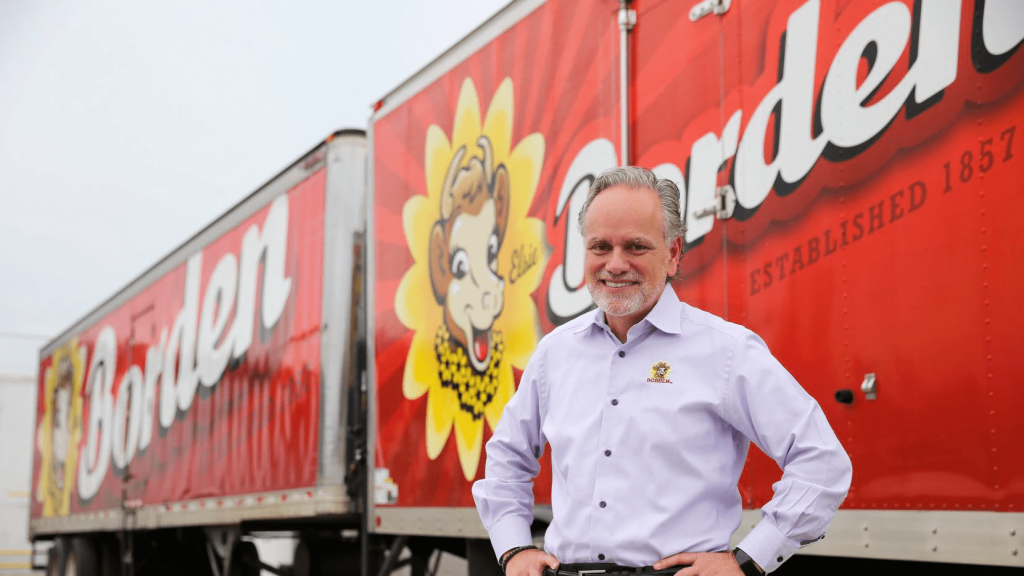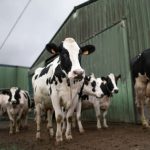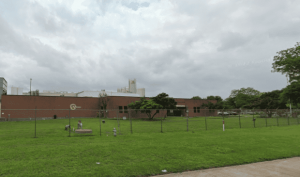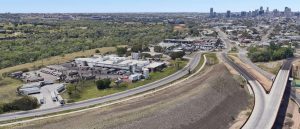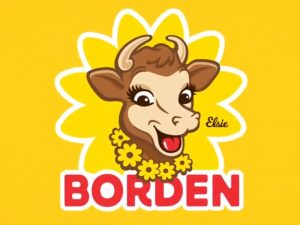
Dallas-based Borden Dairy, which filed for bankruptcy protection in January, has been scooped up by private equity giant KKR & Co. and an investment firm led by the former CEO of Borden’s biggest rival, Dallas-based Dean Foods.
The deal won’t be approved until a sale hearing on Thursday in Wilmington, Delaware.
The two buyers created the entity New Dairy Opco LLC to buy nearly all of Borden’s assets, with Capitol Peak Partners leading the bid, according to court documents and people familiar with the matter. Gregg Engles, former head of Dean Foods, founded Capitol Peak in 2017.
Borden filed for bankruptcy in January due to growing headwinds in the industry, including a 46% drop in fluid milk consumption per capita from 1980 to 2018, according to U.S. Department of Agriculture data. At the same time, the cost of raw milk that Borden buys from small farmers rose 27% in the past year, Borden wrote in its bankruptcy filing.
Private equity giant KKR bought Borden, known for its “spokescow” Elsie, in 1995 for $2 billion and made it private after 68 years as a publicly traded company. It later sold off divisions and brands to various buyers, but remained a lender for Borden’s $175 million term loan, according to court records.
In January, KKR wasn’t happy with Borden’s decision to file for bankruptcy, saying it thought it had reached an agreement with the company to avoid that, according to court documents. KKR also argued that filing for Chapter 11 mostly benefited another private equity backer, ACON Investments LLC, which took a major stake in Borden in 2017. Borden’s majority owner remains Laguna Dairy S. de R.L. De C.V., owned by Mexico’s Grupo Lala.
Dean Foods, which filed for bankruptcy in November due to similar concerns about the industry, struck a deal to sell off most of its assets to Dairy Farmers of America, the nation’s largest dairy cooperative. Before the deal was announced, Borden hoped to merge with Dean Foods in April.
“That was an idea that I believe could have worked and been a good outcome for all the stakeholders and created an independent processor. … We thought it was a good idea but, frankly, it came late in their process,” Borden CEO Tony Sarsam told The Dallas Morning News last month.
In the same interview, Sarsam, who joined Borden in 2018 after successful runs at PepsiCo’s Frito-Lay division and at Nestle, said he expected the bankruptcy process to be over by the end of June. Sarsam said he came to Borden because he saw the long-term potential if he could reduce its debt through a restructuring.
In 2018, Borden reported $1.2 billion in sales with a loss of more than $14.6 million. For January 2019 through Dec. 7, 2019, the company reported a loss of $42.4 million. Borden’s bankruptcy filing shows that both its assets and liabilities are each between $100 million and $500 million.
Borden knows it can’t reverse the ongoing consumer trend to drink less dairy. That’s why its growth plan is focused on shifting toward the “in” dairy products of 2020, such as flavored milk — including a cotton candy flavor, indulgent dips, a higher protein milk marketed for kids called Kid Builder and regular and gingerbread-flavored eggnog.
While fluid milk consumption has dropped over the last 30 years, yogurt consumption per capita has grown five times what it was in 1980 and American cheese consumption per capita has nearly doubled. Borden hopes to change its product lineup to match consumers’ new dietary habits.
Borden said it saw a 25% drop in production during April and May due to the coronavirus shutting down schools and restaurants, which together represent about one-third of its business. Last year, Borden had 3,300 employees across 13 plants and 75 distribution centers.
But the dairy company also won a lucrative government contract during the shutdown to deliver 700 million servings of fresh fluid milk to nonprofits over about six to seven months. That’s equal to about 10% of its annual production of 500 million gallons. Sarsam said it was a “meaningful amount of volume and revenue” for the company.
